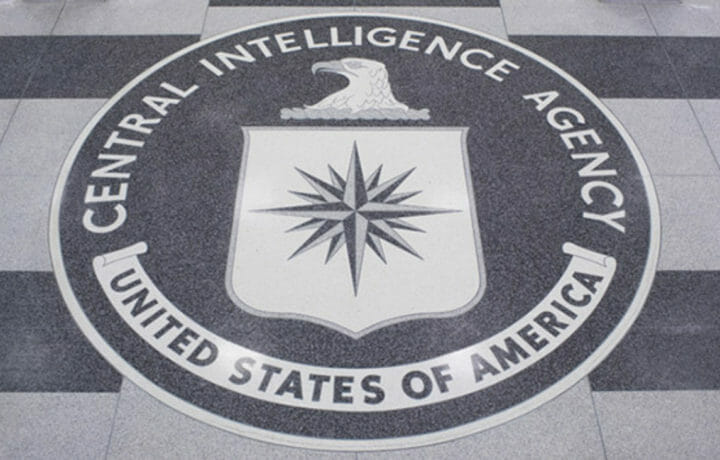There are a lot of things we don’t know about the Central Intelligence Agency, and the CIA likes it that way. But with secrecy comes theories about what the agency is up to, and things can get pretty farfetched.
5 More myths About the CIA
We have written about CIA myths before, but with so many mysteries surrounding the Company, we decided to do it again. Here are five myths about the Central Intelligence Agency.
1. “The CIA killed Kennedy.”
The fewer words spent on this the better, but the short version is no. The CIA killing JFK would mean a bunch of federal employees coming together to work after hours and on weekends without overtime pay, pulling off the highest profile covert operation in American history, and nobody ever taking credit for it.
The National Archives hosts the JFK Assassination Records Collection, including the files from the CIA. If you want to find proof of the CIA’s culpability, all the pieces are there for assembly. (Good luck!) The real revelation in the documents seems to be how inept the CIA was at killing Fidel Castro—a much softer target whose death would have been a boon to an agency.
Occam’s Razor applies to the JFK assassination: A deeply disturbed person who loved attention and had a gun decided to write himself into history—and succeeded. You really have to admire the durability of the JFK/CIA conspiracy theory, though. Nobody ever talks about the assassination of William McKinley.
2. “My uncle was a CIA agent.”
Anything is possible, but if your uncle called himself a CIA agent, he probably was not a CIA agent. (He likely did not work at Nintendo, either.)
Employees of the CIA are called officers. Agents are the people that officers recruit. These assets are generally foreign and hopefully well-placed and trustworthy. It might seem like hairsplitting, but it matters a lot if you are overseas and caught. A CIA officer is likely to be exposed and used as a negotiation tool with the United States. An agent of the CIA is likely to find a much less pleasant fate.
(Just to complicate things, the FBI doesn’t have any agents either; rather, it has “special agents.” What’s the difference, you ask? It goes back to the early days of the Bureau, when its force could support local investigations, but not make interstate arrests. When Congress gave arrest authority to agents, they were deemed “special agents.” The title remains to this day.)
Of course, there’s a lot of money to be made in claiming you were a Company man, when really you were not. It tends to go badly for those who do, though.
3. “My uncle was a Central Intelligence Agency assassin.”
Does the CIA kill people? Sure. Did your uncle kill people for the CIA? Probably not!
First off, your standard issue CIA officer is not pulling a gun and earning his or her “double-0” status. More likely, he or she doesn’t even have a gun, and is instead trapped in an Office Space hellscape of Swingline staplers, rubber-band fights, and prank emails. (It’s so much worse than you think, as revealed during a federal trial last year.)
The CIA does have a group that does “wet work,” among other things. The very small, elite Special Operations Group, sometimes called the “ground branch” and part of the broader Special Activities Center, is responsible for the agency’s paramilitary operations. For reasons that are obvious, that sometimes involves carrying a gun and shooting at people. But if you really want to work for the CIA and kill someone, pick up a joystick and follow me: drone strikes are where it’s at. This group presumably belongs to the Special Activities Center, but it’s not like they’re spelling it out on the official CIA website.
The myth of the James Bond-like CIA assassin is enduring, though baseless. CIA officers don’t want to be noticed; movie spies don’t worry much about that.
4. “OK but if a CIA officer wanted to kill someone, they could use their weapons training to do it.”
Most CIA officers don’t carry weapons because they don’t need to. They don’t arrest people, including Americans overseas. (The FBI has legal attachés to work with foreign law enforcement for that.)
But for a hundred or so paramilitary officers, the CIA doesn’t shoot people as a matter of course. Spy handlers abroad don’t generally carry guns because most countries aren’t like Texas. Carrying a gun will attract precisely the sort of attention a clandestine officer works diligently to avoid. The notion of the CIA as a super agency whose employees know where the flying saucers are buried is wonderful fodder for film and fiction, but doesn’t match up with average Company life, which involves reading documents and meeting people.
5. “The Central Intelligence Agency knows about the space aliens (and is working with them to lay the groundwork for the invasion).”
The CIA Freedom of Information Act Reading Room hosts declassified UFO files from the agency’s archives. They make for some amazing reading! The internal agency memos from the late 1940s and early 1950s are particularly delicious because it’s clear CIA officers are trying to make heads or tails of the UFO phenomenon, and are more interested yet in how they might use it for psychological warfare abroad. (UFOs could cause mass hysteria, overload radar monitoring facilities, and overload communications facilities.) Also, it’s pretty obvious from casual reading that nobody wants to say “aliens,” but everyone is definitely thinking that.
The takeaway is that for forty years (where the archive ends), the CIA was as baffled about flying saucers as the rest of us.
But to all this, who knows? Maybe I’m on the Company payroll and part of the misinformation campaign. With the CIA, you never know…




